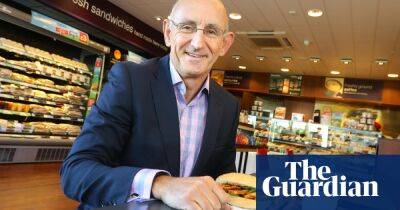UK chickens can be ‘free-range’ despite never going outside, due to loophole
A loophole in government regulations means that chickens can still be called free-range even though they are no longer allowed outside due to the outbreak of avian flu.
The UK was hit by what government officials described as the “largest ever outbreak of avian flu” over the winter, with almost 100 reported highly pathogenic outbreaks in England, Scotland and Wales.
All birds reared for meat and eggs have been ordered by the UK government to be kept indoors since November to reduce the risk of outbreaks.
As a result, free-range eggs now have to carry a sticker or label saying they are in fact “barn eggs” – the name given to eggs produced by hens permanently housed indoors.
But producers who sell their chickens for meat do not have to inform consumers that birds are not allowed outdoors. UK officials have said that chicken producers can retain their free-range status so long as birds are not housed for more than 12 weeks.
Free-range birds, which are usually slaughtered at about eight weeks, do not live long enough for the labelling rules to apply to them. “It’s a terrible situation for farmers, but if a free-range chicken has never been allowed outdoors in its life that should be made clear to consumers,” said Peter Stevenson, the chief policy adviser for Compassion in World Farming .
The situation could get worse, with leading disease experts telling the Guardian last month that free-range production may no longer be feasible in the UK due to a dramatic escalation in avian flu outbreaks. In past years, outbreaks of avian flu dropped with warmer weather and the end of the wild-bird migration in autumn and winter months. But disease is continuing to spread in the UK, with five more outbreaks on poultry farms in Cambridgeshire,
Read more on theguardian.com



















